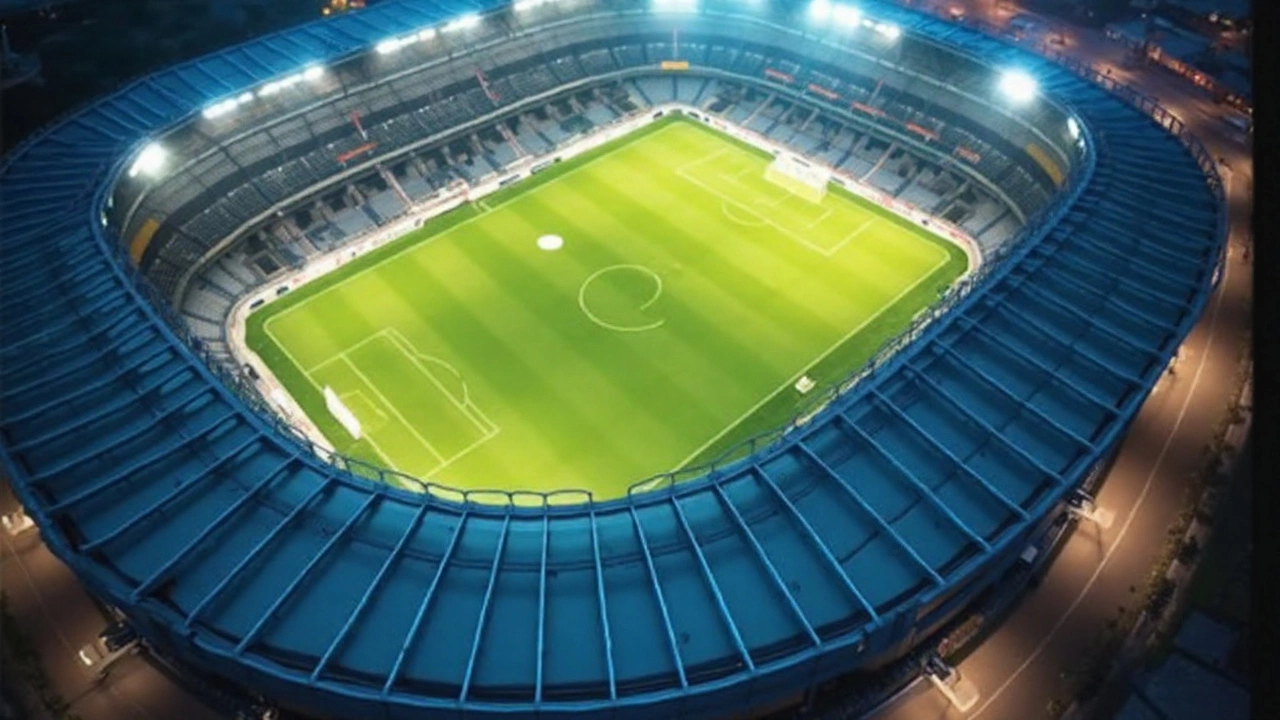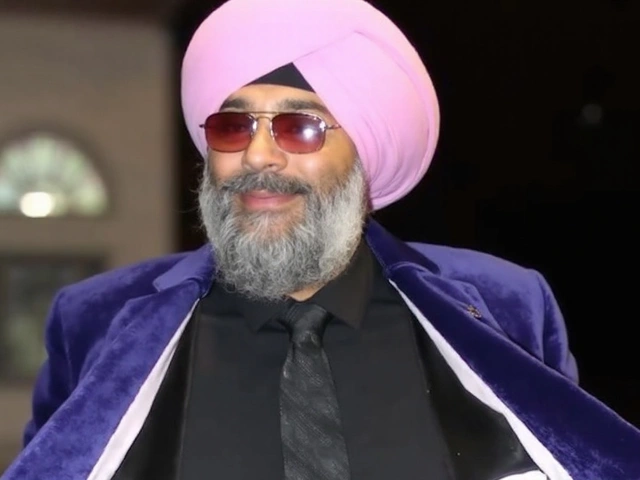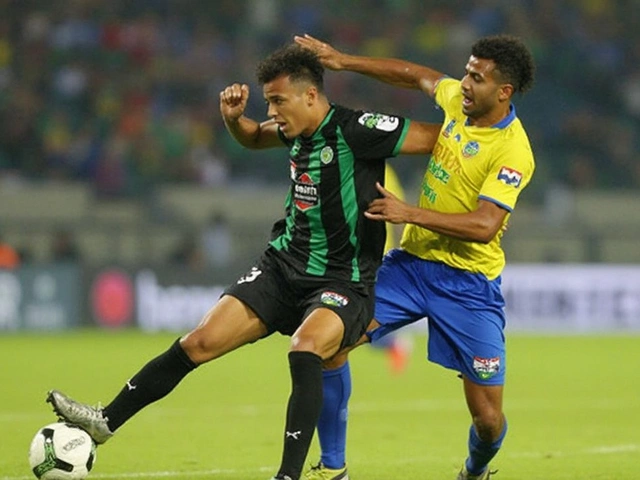Arsenal's new core delivers as Emirates crowd gets early season statement
Arsenal didn’t just win; they controlled the day from the first whistle and walked off with a 3-0 that felt ruthless and assured. On a bright September afternoon at the Emirates, new signings Martín Zubimendi and Viktor Gyökeres did the damage, with Zubimendi scoring on 32 minutes and again late on, and Gyökeres striking 50 seconds into the second half. The result sends Arsenal top of the Premier League, four games in, with nine points and a sense that the summer rebuild is bedding in fast.
This wasn’t a chaotic early-season shootout. It was clean, structured football. Mikel Arteta’s midfield balance looked right from the start. Zubimendi anchored the game, always showing for the ball, always resetting the tempo. Eze, another of the summer recruits, drifted between the lines and kept Forest guessing, while Gyökeres ran hard across the back line, never letting the centre-backs settle. Forest had a plan to sit compact and counter, but it never came alive.
Zubimendi’s opener summed up Arsenal’s control. After a long spell of possession that pulled Forest from side to side, the Spaniard arrived on the edge of the box at just the right time. First touch to set, second to place it low past the keeper. Debut-season nerves? None on show. It was the goal of a player who already looks like he’s been in this system for years.
The second, almost straight after half-time, came from a mistake that Arsenal punished in a blink. Forest fullback Savona misjudged a long ball over the top. Eze pounced, squared it, and Gyökeres tapped in from close range. The flag stayed down; VAR had a quick look for offside and then confirmed what most in the ground saw in real time. Arsenal two up, Forest sagging.
From there, the visitors needed a spell of pressure to shift the mood. It never arrived. Arsenal’s press was organized and boring in the best way: repeatable, reliable, and suffocating. When Forest did break a line, they found the next red shirt ready to clean up. Saliba and Gabriel (and the full-backs tucking in) kept runners in front of them, and David Raya was mostly a spectator behind a well-timed high line.
Zubimendi’s second goal on 79 minutes felt like a bow tied neatly around the performance. Different finish, same composure. He ghosted into a pocket, took the pass calmly, and picked his corner. Two goals, two types of finish, and a loud welcome chorus from the Emirates as he walked back to halfway. New country, same read of the game.
Look past the scoreline and you see something more: Arteta’s reshaped attack has multiple ways to hurt teams. With Gyökeres, there’s a true focal point who enjoys the battle. He drags defenders around, and when he spins in behind, he commits fullbacks who would rather play safe. That opens lanes for Eze, who thrives on half-spaces, quick give-and-go moves, and disguised passes. Add Zubimendi orchestrating from deep, and Arsenal can go short, go wide, or go over the top as the situation demands.
Forest didn’t help themselves. The second-half error was the obvious headline, but the issues started earlier. Their first pass out from the back was too often predictable: into feet under pressure with no third-man run available. That’s how you get trapped. When they tried to bypass the press with longer balls, Arsenal’s centre-backs won the first contact and the midfield collected the rest. Forest’s wide players found little joy, and their central runners rarely saw clean service.
Credit to Arsenal’s off-ball shape. They set pressing traps on the right, then funneled play into Zubimendi’s zone, where the distances were tight and recoveries quick. It looked rehearsed because it was. The press didn’t aim for flash interceptions as much as it aimed to drain Forest’s energy and patience. Once that happens, you start to see clipped clearances and rushed passes, and the territory battle shifts even further.
For Arsenal, the numbers won’t tell the whole story, but you could feel the efficiency. Fewer wasted touches in the final third. Wingers taking the safe option when a risky dribble wasn’t on. Fullbacks picking their moments to overlap rather than charging blindly. When the crowd is waiting for you to overplay, restraint is underrated. Arsenal showed it.
There were small wobbles, as there are in any Premier League match. Just before the break, Forest pieced together a neat move down the left and forced a hurried clearance. Later in the second half, a loose midfield pass led to a half-chance at the top of the box that curled wide. But those were the exceptions. The broader pattern never changed: Arsenal in control, Forest hoping for a swing that never came.
It’s worth pausing on Zubimendi. His game is about angles and timing, not showreel tricks. He rarely runs into blind alleys, and he always gives his centre-backs a simple out-ball. That is gold in a team that wants to build from the back under pressure. The brace will steal the headlines, but the more lasting takeaway is how quickly he has become the reference point in midfield.
Gyökeres will feel good about his afternoon too. Strikers live on goals, yes, but they also live on patterns. He found joy peeling onto the fullback, then darting back between centre-back and keeper. He bullied defenders without getting drawn into fouls. And he kept showing, even when the ball didn’t come. That persistence matters; it wears teams down over 90 minutes and over 38 games.
Eze’s contribution may read subtle on a stat sheet, but it was the kind of subtle that makes a plan work. He turned smartly under pressure, held off a challenge, and kept combinations moving. He isn’t a winger who hugs the touchline or a No. 10 parked on the penalty arc. He is a connector. With him, Arsenal’s attacks felt less like individual actions and more like sequences.
Forest will leave with regrets. The compact block was fine in theory, but without pressure on the ball in midfield, Arsenal had time to pick passes. When they finally pushed up to contest possession, the space behind was exposed. That’s a brutal spot to be in against a team that can switch play cleanly and run in behind with purpose.
Arteta won’t say it publicly, but he’ll like the checklist from this match. Clean sheet. New signings delivering. Control of the middle third. A threat on set pieces even if the final touch didn’t arrive. Fitness levels high late into the game. It’s early, yes, but the patterns you want to see in September are showing up.

Key moments and what they said about the game
- 32' — Zubimendi opens the scoring with a composed low finish after a patient, multi-pass move. It confirmed Arsenal’s midfield edge.
- 46' — Gyökeres makes it 2-0 within a minute of the restart, capitalizing on Savona’s misread. VAR check for offside is brief; goal stands.
- 60'–70' — Forest push higher but fail to string together clean entries. Arsenal’s counterpress wins the second balls.
- 79' — Zubimendi adds his second, picking his spot from inside the box to kill the contest.
Table-wise, it’s tidy. Arsenal move to 3-0-1 and nine points, top on the day. Forest drop to 1-1-2 and four points, and the concern will be less about the defeat and more about how little they created. The Premier League is unforgiving when your first pass out is shaky and your transitions lack support.
The Emirates crowd felt the rhythm too. No anxious groans, no edgy sideways passing for the sake of it. Just a team stepping on the ball when needed and stepping on the gas when the gaps opened. If this is the baseline, the ceiling will be the part that keeps opponents up at night.
There will be tougher tests ahead, and Arteta knows it. But days like this matter. They plant the idea that the new pieces aren’t just names on a team sheet; they’re parts of a machine that moves the same way, whoever slots in. That’s what title chases are built on: repeatable performances, week after week, with just enough individual sparkle to tilt close games. Today, it never even got close.








Write a comment